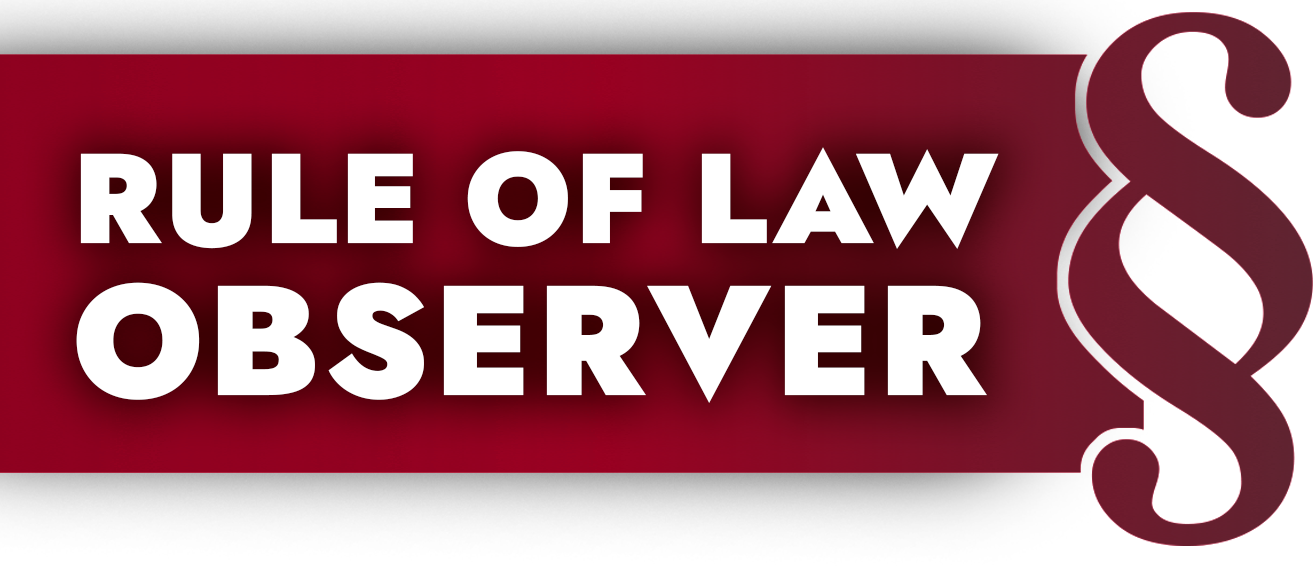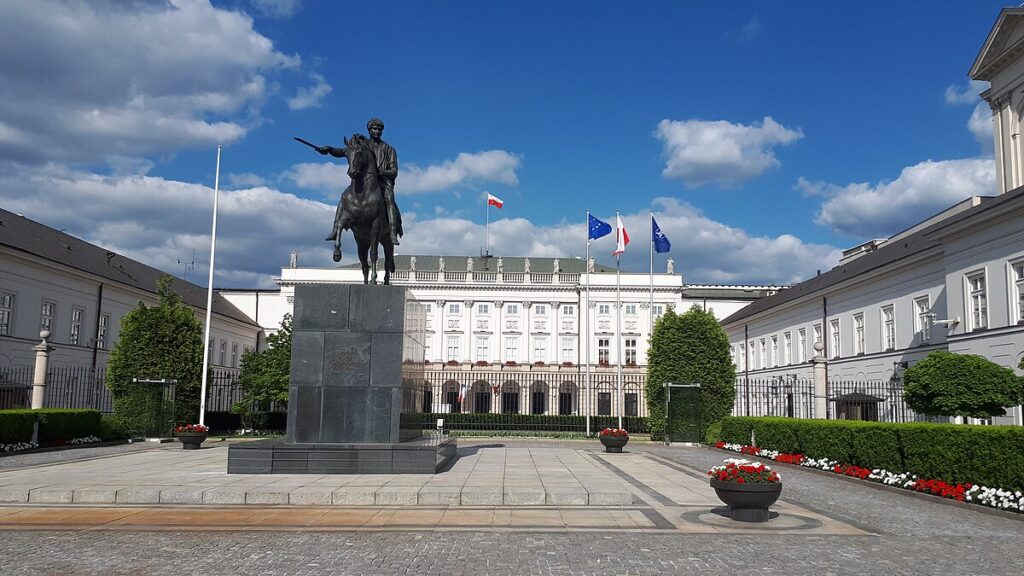- On November 12, 2025, the President of the Republic of Poland, Karol Nawrocki, refused to appoint 46 judges recommended by the National Council of the Judiciary (KRS), citing as justification that they had questioned the constitutional order of the Republic of Poland, in particular by undermining the status of judges appointed after the judicial reform carried out by the Law and Justice government in 2017.
- On this occasion, President Nawrocki cited several recent rulings in which, on appeal, the first-instance court’s judgment was vacated solely because a judge appointed since 2018 sat on the panel. After one of these rulings, the Minister of Justice, Waldemar Żurek, called on judges appointed since 2018 to stop adjudicating.
- Minister Żurek criticized the President’s decision to refuse to appoint judges, suggesting that it should be reviewed by an administrative court. However, the Minister’s position is decidedly at odds with the case law of Poland’s Supreme Administrative Court (NSA) and Constitutional Tribunal (TK), which emphasize the significant implications of the fact that appointing judges is the President’s constitutional prerogative.
The day before yesterday (November 12), the President of the Republic of Poland, Karol Nawrocki, announced that he refuses to appoint 46 judges who were presented to the President in motions by the National Council of the Judiciary. The president did not hide the motives for this decision:
This is no longer just a verbal signal, but a concrete decision not to grant a nomination—and I will also not grant promotions to those judges who question the constitutional and legal order of the Republic of Poland. To those judges who heed the insidious whispers of the Minister of Justice, Mr. Waldemar Żurek, who encourages judges to question the constitutional and legal order of the Republic of Poland.
In other words, the President, consistent with his earlier declarations made upon taking office, did not appoint those judges who allowed themselves to be drawn into the political dispute concerning the status of judges appointed after March 6, 2018, thereby, acting without a legal basis, treating the judgments of those judges as null and void.
The President emphasized that such action is by no means merely an abstract, academic dispute about constitutional arrangements, but, on the contrary:
Today this also affects the lives of our citizens, ordinary people who cannot obtain a court judgment that is fair and in accordance with Polish law.
Recent rulings and related attempts by Minister Żurek to pressure judges of the ordinary courts
The President cited specific cases of recent high-profile rulings in which the lower court’s judgment was vacated and the case was remanded for reconsideration solely because the panel of that court included a judge appointed in 2018 or later. Specifically:
- the case of overturning the life sentence for a murderer from Puszczykowo near Poznań, who murdered his wife and two daughters;
- the case of a man from Kołobrzeg who took the lives of three women;
- the case of a pedophile from Poznań who raped a fourteen-year-old girl.
In particular, the first case has recently sparked public outrage. Contributing to this most of all was the Minister of Justice himself, Waldemar Żurek, who did not miss the opportunity to force the judges of the common courts, appointed to their current positions since 2018, to refrain from fulfilling their basic duty, just as earlier he had in a similar vein pressured the judges of the Supreme Court and the Supreme Administrative Court:.
But look, this is exactly what the justice system looks like with neo-judges involved. I urge you: Do not go into the courtroom.
That the Minister’s appeal is entirely unfounded is one thing—not only were the provisions on the basis of which these judges were appointed found by the Constitutional Tribunal to be consistent with the Constitution in the judgment of March 25, 2019 (K 12/18), but EU institutions (leaving aside doubts as to the competence of EU law in this area) have also expressed positions according to which judges of the ordinary courts appointed since 2018 are undoubtedly judges.
At the same time, however, acting on this appeal would lead to the paralysis of the Polish justice system, because it would mean the cessation of adjudication by more than one-third of all judges of the common courts.
Appointment of Judges as a Presidential Prerogative in the Case Law of the Supreme Administrative Court and the Constitutional Tribunal
Returning, however, to the President’s statement about not appointing judges, as could be expected it provoked a reaction from the leadership of the Ministry of Justice, which began to challenge it extensively. For example, Deputy Minister Dariusz Mazur described the President’s decision as:
an unacceptable abuse of power that will result in the politicization of the judiciary.
Minister Waldemar Żurek went even further, suggesting that the President’s prerogative only authorises him to:
present nominations, but not to independently decide who is to become a judge.
Minister Żurek also expressed the following opinion:
In my opinion, such a decision by the President should be treated as an administrative act and should be subject to judicial review.
Meanwhile such an opinion is inconsistent with the position of the administrative judiciary itself, as can be read in the reasoning for the judgment of the Supreme Administrative Court of December 7, 2017. Case No. I OSK 857/17 (the refusal to appoint a judge did not include a statement of reasons):
“There is also no administrative-law relationship between the National Council of the Judiciary (KRS) and the President of the Republic of Poland. The acts issued by the National Council of the Judiciary (regarding the presentation of a motion to appoint a judge) and by the President (an order appointing a judge) constitute the exercise of distinct powers of the two bodies. The President is not bound by the request of the National Council of the Judiciary. To the extent that the President of the Republic of Poland acts as the head of the Polish State, symbolizing the majesty of the State and its sovereignty, such action falls outside the scope of administrative activity. The competence of the President specified in Article 179 of the Constitution is treated as the President’s personal power (prerogative) and, at the same time, a sphere of his exclusive purview and responsibility.
First and foremost, however, the position of the Ministry of Justice, according to which the President of the Republic of Poland may not refuse to appoint a judge recommended by the National Council of the Judiciary, is contrary to the case law of Poland’s Constitutional Tribunal, as expressed in particular inits judgment of 5 June 2012, K 18/09. The Tribunal then held that:
In light of the prevailing views among legal scholars, there is no doubt that, although the President’s discretion is limited to taking a position on the candidate proposed by the KRS, the designation of the power to appoint judges as a prerogative underscores that the President has no legal obligation to grant the KRS’s request, while a refusal should occur only in extraordinary circumstances and would have to be preceded by the submission of objections to the KRS by the President’s representative serving on it […]. The President’s role in the nomination process is not limited to that of a “notary,” confirming decisions made elsewhere […], but he makes an independent assessment of the candidates presented to him and, as a consequence, may refuse to grant the KRS’s motion. He should be granted the right to refuse to comply with requests put forward, if in his view they would run counter to the values he has been appointed by the Constitution to safeguard […].
The Court also emphasized that there had been precedents when the President had effectively refused to appoint a candidate proposed by the KRS:
As regards constitutional practice, until 2007 there had been no instance of the President refusing to grant an application from the National Council of the Judiciary (KRS). This practice changed when the President, by decision of January 3, 2008 (M. P. No. 4, item 38), refused to appoint to judicial office nine persons indicated in the KRS’s motion.
The President of the Republic of Poland himself is also aware of the above facts and, in response to the foregoing statements by Minister Żurek, stated that:
It’s sad that the Minister of Justice does not know the Constitution, which clearly defines the president’s powers with respect to the appointment of judges. It’s doubly sad he is unfamiliar with the Constitutional Tribunal’s 2012 ruling. I understand that he is trying to draw attention to the lack of justification. Justification is not required. The rationale is that all judges nominated by the President of the Republic of Poland are judges of the Republic of Poland and should focus on issuing rulings and judgments, not on turning courtrooms into a Sejm chamber. The Minister of Justice should respect the Polish constitution and the rulings of the Constitutional Tribunal. I, like all my predecessors, all Presidents of the Republic of Poland. may nominate judges and may refuse such nominations in accordance with Polish law and the Polish Constitution.
Summary
To sum up—the provisions of Articles 179 and 144(3)(17) of the Constitution are unambiguous: the appointment of judges is the President’s prerogative, the exercise of which lies within his discretion and is preceded by particular deliberation arising from the President’s role as guardian of the Constitution, as defined in Article 126(2). A similar conclusion follows from an analysis of the case law and doctrinal views, which indicate the exceptional nature of refusing to appoint a judge, the grounds for making such a decision, and, in some instances, also the necessity of providing reasons for the decision—which President Karol Nawrocki did publicly.
Let us recall—not for the first time in the Rule of Law Observer—that the strong position of a President elected by universal suffrage in the process of appointing judges should be assessed unequivocally positively from the standpoint of the principle of the separation and balance of powers, referred to in Article 10 of the Constitution, as a model example of a checks and balances mechanism, balancing the position of the judicial and legislative branches (which together hold an overwhelming majority in the KRS) in this process.
It is also worth emphasizing at this point that the entire problem would not exist if judges simply applied the law and examined any doubts as to a judge’s compliance with the requirements of independence and impartiality exclusively in the procedure prescribed by law, i.e., under Article 42a of the Law on the System of Common Courts, which, on the one hand, does not limit such doubts to judges appointed since 2018 and, on the other, requires evidence—at an early stage of the proceedings (in accordance with the principle of procedural economy)—that the above doubts may affect the outcome of the case, taking into account the circumstances relating to the entitled party and the nature of the case.
Illustration source: Wikipedia.



